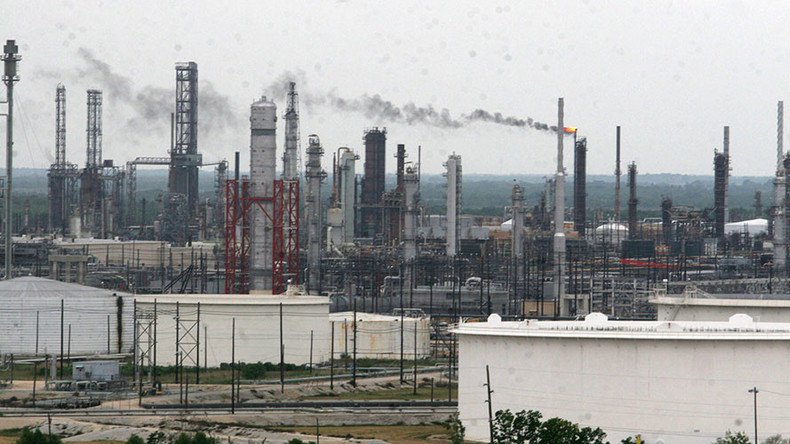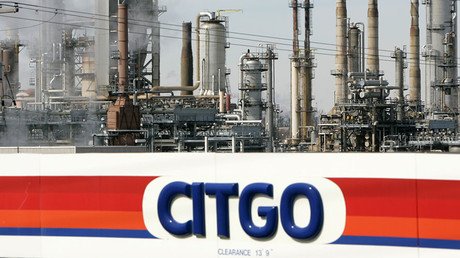Saudis now fully own America’s biggest oil refinery

Saudi Aramco has become a 100-percent owner of Port Arthur, an oil refinery in Texas. Port Arthur has a capacity of 600,000 barrels per day, making it the biggest in North America.
The kingdom’s national oil company previously owned 50 percent in the refinery before acquiring the full stake from Royal Dutch Shell on Monday. Complicated relations between the companies forced them to separate their assets. On Monday, Shell announced the divorce was complete.
Saudis also acquired 24 distribution terminals, Aramco said in a statement. The Saudi firm also got the exclusive right to sell Shell-branded gasoline and diesel in Georgia, North Carolina, South Carolina, Virginia, Maryland, Washington DC, the eastern half of Texas, and the majority of Florida.
85% to 50%: Saudi Arabia slashes Aramco corporate tax rate https://t.co/NMAA66PiLQ
— RT (@RT_com) 28 марта 2017 г.
The Gulf Coast refinery agreement was signed less than two months after US President Donald Trump met with Deputy Crown Prince Mohammed bin Salman at the White House.
“This meeting is considered a historical turning point in relations between both countries and which had passed through a period of divergence of views on many issues,” a senior adviser to Prince Mohammed said in a statement in March.
In November 2016, then-President-elect Donald Trump warned he could halt imports from Saudi Arabia and other Arab countries if they do not send ground troops to fight Islamic State (IS, formerly ISIS/ISIL).
In April, several members of Congress wrote a letter to US Treasury Secretary Steve Mnuchin, expressing concern that Russia’s largest oil company, Rosneft, could take control of Texas-based oil company Citgo.
The takeover “could pose a grave threat to American energy security, impact the flow and price of gasoline for American consumers, and expose critical US infrastructure to national security threats,” they wrote.
Nearly 50 percent of the Houston-based corporation’s shares, which belong to Venezuela, were offered last year as collateral when Venezuela’s state-run oil company PDVSA obtained a $1.5 billion loan from Russia’s Rosneft.













